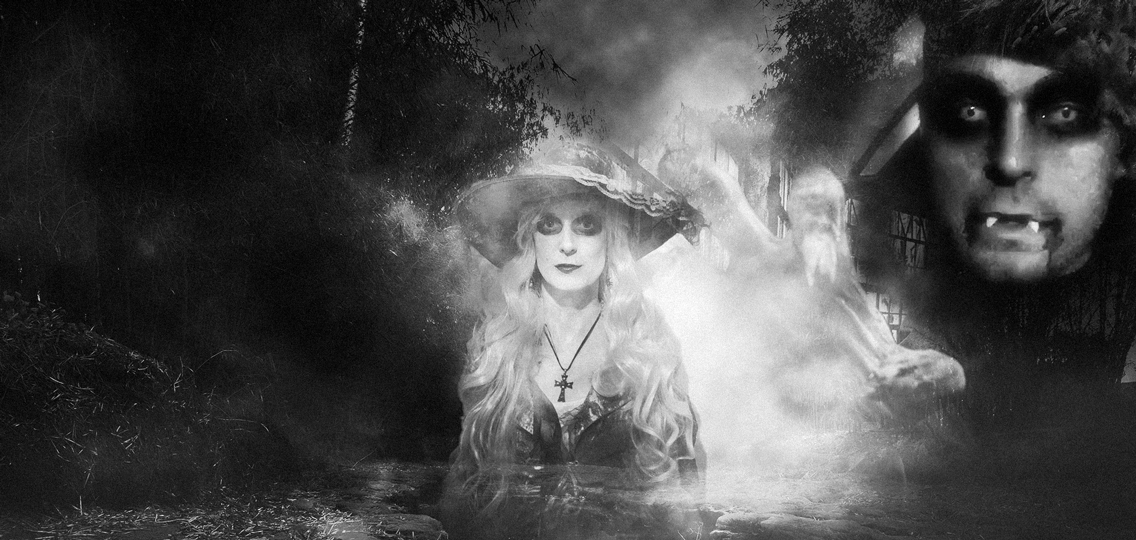The human reaction to Halloween and horror
It’s over 40 years since the iconic and incredibly successful film ‘Halloween’ hit our screens. At the time it was considered widely influential within the horror genre and so successful there is now a remake in the offing.
Now, in 2018, Netflix has given us the ‘Haunting of Hill House’, to wide and rapturous acclaim from horror fans. Even the great Stephen King is calling it “close to a work of genius”. For some viewers though, it’s so terrifying they’re struggling to sleep or even passing out. But, it seems, we continue to watch it.
So what makes us want to flock to see such suspense, murder and mayhem and – what’s more – often pay for the privilege? In other words, what makes fear fun?
A study by the University of Pittsburgh (Margee Kerr) in 2017 asked if there was more to just the adrenaline rush that people speak of (‘it’s fun! it’s exciting!’), something beyond the ‘fight or flight’ mode that kicks in when we’re startled or scared and why people would want to do that to themselves intentionally.
Overall their findings suggested that the gains were similar to physical exertion, for example, a 5K run. It was perhaps that sense of uncertainty, physical pressure, the mental challenge and finally the sense of achievement of getting through it that gave people a thirst for all things spooky. We’re basically thirsty for an emotional response.
This is all very interesting but what, you may ask, does this have to do with stakeholder communications?
Certainly, people shouldn’t be startled or scared into an emotional response with day to day communications but the study does highlight the strong and at times intense relationship between emotional response and engagement.
This follows through to the business world just as it does in any other area of life. For companies to really connect with people, effective communication that speaks to people at the appropriate level, in the right language, at the right time, is vital – and if they can also manage to generate an emotional response then it makes the message far more powerful, memorable and is likely to promote action.
It’s well documented that good leadership communication reflects an understanding of the audience, which moves them to listen and what motivates them to act. In other words, they engage with people at an emotional level, creating a shared understanding and with it a greater sense of belonging and commitment to the business. And there are many great examples of leaders out there who have those skills in spades and, as a result, have a very loyal following among their people.
Engaging people is not magic or spooky – it’s all about effective communication
Anyone can achieve effective communication campaigns that really speak to people and build an emotional connection. One of the challenges of achieving this, particularly in large complex organisations, is that there can be a huge disconnect between some group-level functions and the rest of the business.
Where communications teams are often disproportionately small compared to the size of this challenge, trying to ensure communications are delivered consistently for all functions can be a time-consuming and problematic task.
And then, what about those subject matters that are often quite dry, like legal or financial topics?
It’s not unfair to say that some business communications are, by their very nature, dry subject matters, but important nonetheless. However, we can still create an element of emotional response by applying those leadership communications skills and commonly accepted marketing techniques. Even dry topics can be lifted to a new level, helping them to become more appealing, digestible, understandable and engaging, which in turn helps to influence behaviours and fosters a more positive and cohesive culture.
We just don’t have much time, but we’d like our dry subject matters to be communicated better
We have many clients who are either subject professionals or communications teams – there’s often quite a bit of time and effort involved in bringing the technical and creative aspects together. This is where Eximia comes in.
Eximia was founded to do just that – to help bridge that gap between technical professionals and resource-deprived comms teams. We have the technical, professional and commercial expertise alongside creative skills to strategise, write copy, design branded digital and printed assets, to deliver exceptional communication campaigns.
So, all I’d say is, there’s no need to get spooked by the communications challenge. We’re not here to write your next big blockbuster or award-winning boxset (although, you just never know), but the Eximia team can help you bring your project to life that will create a thrilling experience for your audience and eerily great results for your business – with absolutely no horror or mayhem in sight!



